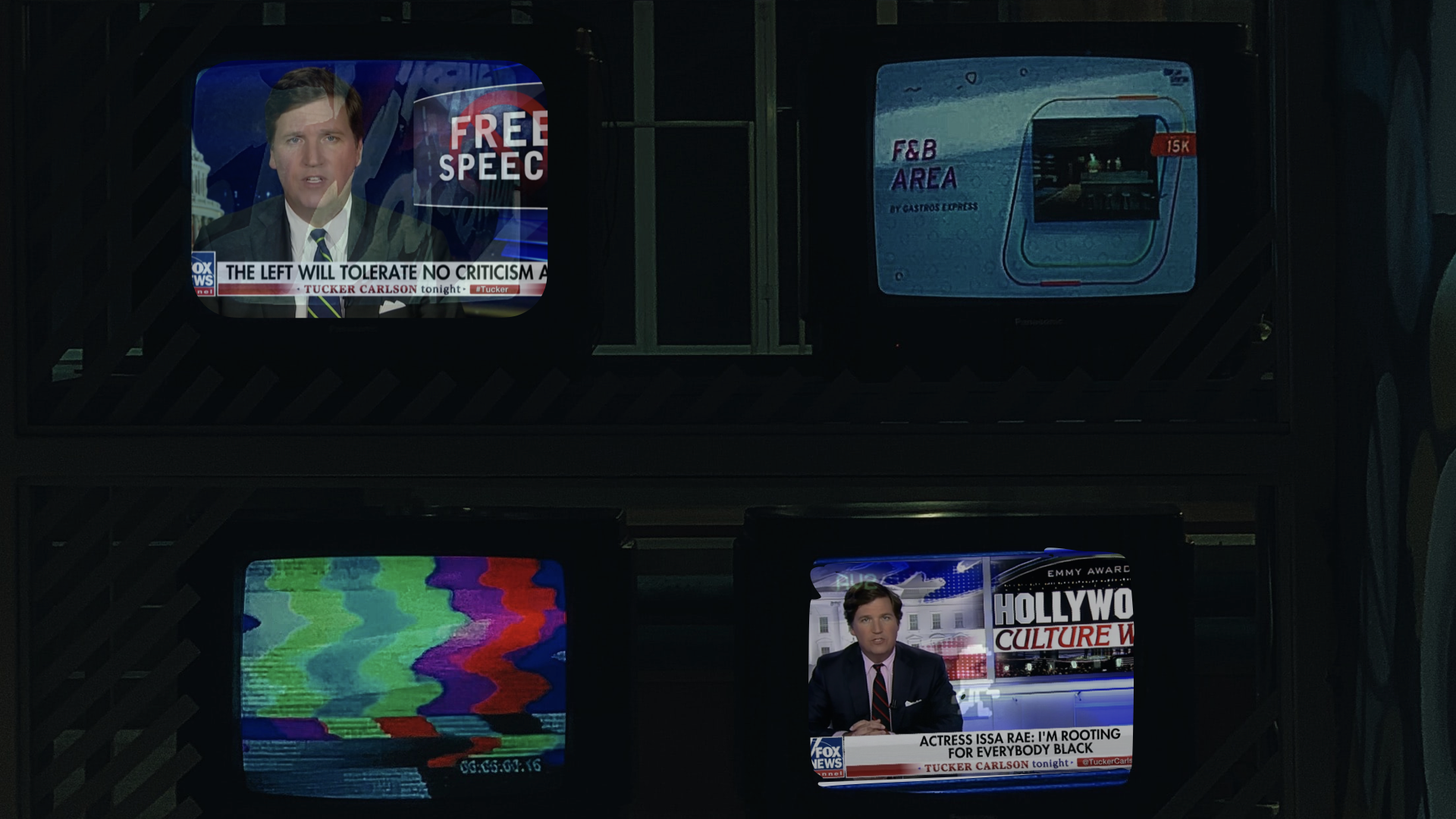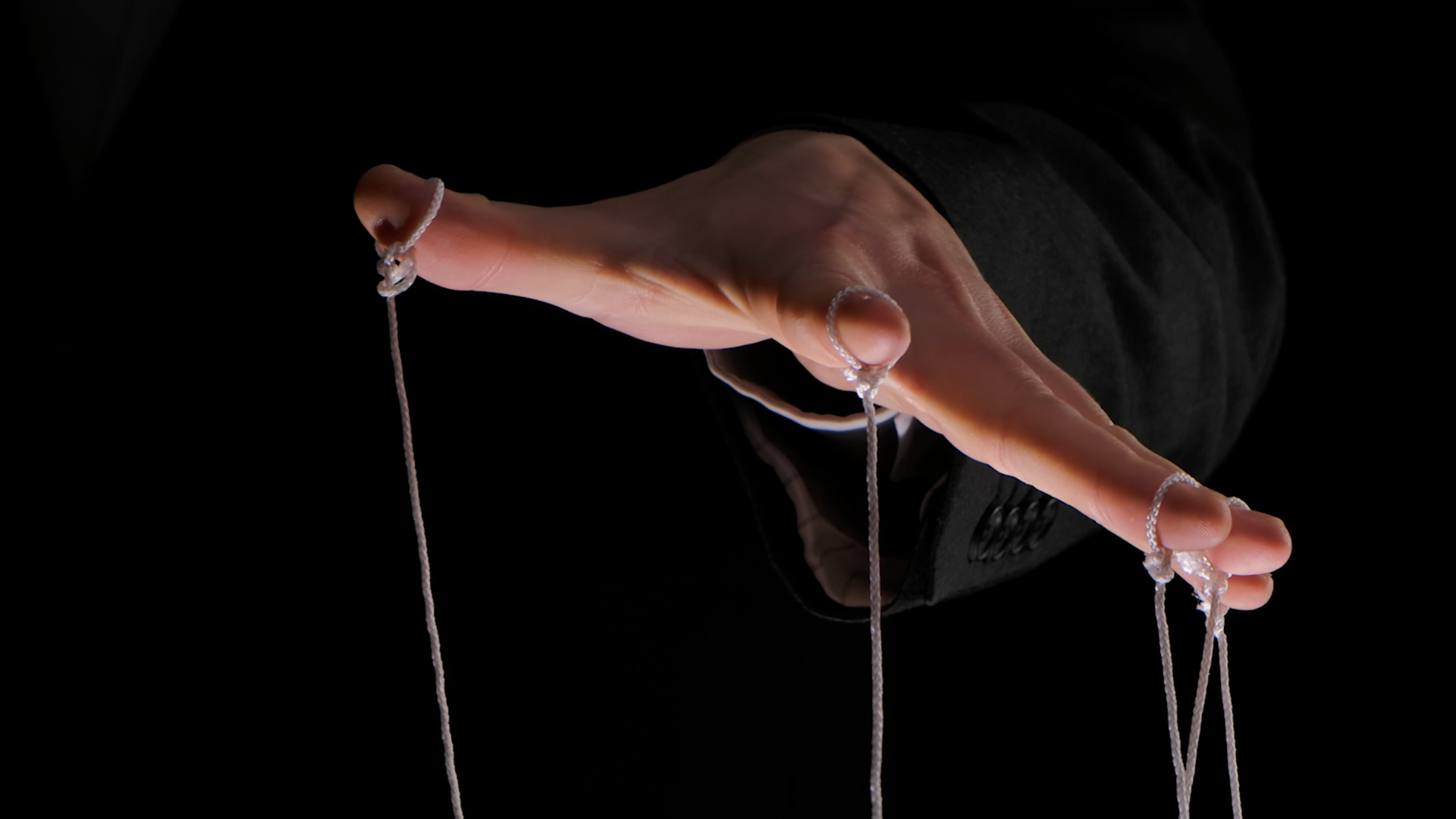Tucker Carlson “may be the most powerful conservative in America.” That’s Time magazine’s recent assessment of the Fox News commentator, whose prime-time TV program debuted shortly after former President Donald Trump’s election in 2016 and is now the most-watched show on U.S. cable news. Carlson frequently provokes outrage on the American left—and in the mainstream American media—for promoting a politics of right-wing cultural resentment that sometimes includes conspiratorial speculation and outright bigotry. He drew controversy earlier this month with broadcasts from Budapest, where he interviewed and promoted the authoritarian Hungarian Prime Minister Viktor Orbán, claiming that Hungary has “a lot of lessons for the rest of us.” How did these extreme ideas become such a regular feature of prime-time U.S. television—and what does Carlson’s prominence suggest about where the American right is headed without Trump in the White House?
Charlie Sykes is a founder and editor at large of The Bulwark, based in Washington, D.C., who worked for decades as a prominent conservative talk-radio host in Wisconsin. According to Sykes, Carlson shares Trump’s rejection of many small-government ideas that had defined the conservative movement from the time of Ronald Reagan’s presidency—and embodies much of the same politics that Trump embraced, including harsh stances on immigration and an often furious engagement in the U.S. culture wars. Yet as an “intelligent demagogue,” as Sykes calls him, Carlson has also sought to move his audience beyond Trump’s ideas, shaping as well as reflecting the right-wing populism of the moment. “The entertainment wing of the Republican Party is dominant right now,” Sykes says, and Carlson is more than a megaphone: “Donald Trump is a follower. One of his skills is watching what people like Tucker are talking about and then following along with it. Trump is always in synch with cable news and talk radio, and the feedback loop doesn’t necessarily start with his ideas.”
Graham Vyse: How do you understand Carlson’s influence?
Charlie Sykes: You start with the obvious—that he has a large and influential audience. But how did he get it? Tucker is very conscious of building his image by constantly pushing the limit of outrageous he can be. He knows where the audience is, but he also knows that if he pushes a few degrees further, that will make him even more influential.
Vyse: He knows where the audience is. You mean, he’s become as influential as he has by understanding something about this audience that others haven’t understood?
Sykes: Yes—though it’s tough to say what it is, exactly. One thing Tucker doesn’t have is a set of coherent, conservative intellectual principles that he feels the need to stick to. He’s able to move with the tide. He understands that a lot of what motivates the conservative base now is insulting and humiliating people they don’t like, and he’s very good at that. He can channel a sense of victimization very effectively. He also has an ability to convince people that he’s going to tell them things no one else is going to tell them—exposing all the secret knowledge out there—and an ability to deconstruct liberal or progressive narratives in a way that other hosts, like Sean Hannity or Dan Bongino, really don’t have the ability to do.

Guys like Tucker are smart; they’re talented; they know what they’re doing. When Tucker pushes the replacement theory [that progressive elites are conspiring to replace white Americans with non-white people who will support the Democratic Party] or advances vaccine disinformation, it’s with a malice of forethought.
Vyse: What did you make of his recent trip to Hungary, in this regard? How do you see the significance of that?
Sykes: Something Tucker has been doing very effectively, and alarmingly, is taking ideas that have percolated in the fever swamps of the right and moving them into the mainstream. He’s given ideas like replacement theory a respectability—a forum they’ve never had before—which is appalling. Fox News ought to be much more concerned about it.
The trip to Hungary was a logical extension of this kind of thing. A fascination with post-liberal authoritarianism has been spreading on the right. There’s an intellectual constituency for it. I’m not sure how broad it is among the grassroots base, but clearly, there are people who have grown tired of American democratic values and want something more exciting, so they’re looking abroad.
There’s a long American history of ideological tourism and fawning over foreign dictators, mainly on the left—Lincoln Steffens going to the Soviet Union, for example, and saying, “I have seen the future, and it works.” Going to Hungary right now—as Viktor Orbán is ruling by decree, attacking universities, undermining the media, waging culture war at a very aggressive level—is normalizing and glamorizing an unapologetic, unsubtle illiberalism.
Something Tucker has been doing very effectively, and alarmingly, is taking ideas that have percolated in the fever swamps of the right and moving them into the mainstream.
A short time ago, embracing someone like Orbán would have been way beyond the pale for U.S. conservatives. There’s a process of redefining American conservatism into a right-wing, European-style ideology, and Tucker Carlson, because of his position, is able to do that.
Going back to your first question, Tucker is influential in part because there’s a huge void. What other conservative intellectual leaders are there? Who are the guardians and thought leaders? One of the things that have happened in the last five years, in the era of Trump, is that conservative thought has profoundly dumbed itself down. We’re not living in a moment of intellectual giants on the right.
Vyse: Who left that void he’s filling?
Sykes: I’m thinking through this as I’m talking: Who played this role in the past? You can’t overstate the significance of William F. Buckley—and of National Review as a forum for, and also a gatekeeper for, conservative ideas. There was, at one time, considerable clout among publications like National Review, Commentary, The American Spectator, the editorial pages of The Wall Street Journal, and then the rise—in the late 1980s and during the 1990s—of a conservative intellectual infrastructure of well-funded think tanks.
People like me thought the future of the conservative movement would be determined by think tanks. In fact, the conservative movement was overtaken by the entertainment wing of the right. The failure has been that, when the moment of testing came with Donald Trump, one conservative institution after another decided to fold.

Everyone always focuses on why elected officials didn’t stand up to Trump. One reason is that the base didn’t go along with them, but the other reasons are that the donor class didn’t stand up to Trump and neither did the think-tank universe. There are no more gatekeepers.
In the era of Trump, nobody understands what conservative ideals are. What does it mean to be a conservative? Tucker understands that we’re not only post-liberal but also post-conservative. He’s willing to jettison Reaganism and the ideas of small government, and all of that. He knows the right wants a strong-man figure.
Now, it seems risky to say the agenda for American greatness is to be more like Hungary, but Hungary can represent this picture of an ethnically pure country that doesn’t tolerate homosexuals, where the right is so muscular it can actually shut down “woke” liberal universities and destroy the biased media. Part of the argument is that the left is dominant and it’s going to destroy everything—they control the universities and the culture, and the only thing the right has is political power, which it needs to use to win this fight.
People need to understand that these ideologies can be appealing. Liberal democracy can be boring. A focus on process can be boring. You don’t get everything you want. It’s not as inspiring.
What was Trump about? Trump was an entertainer. He wasn’t interested in policy necessarily. His appeal was that he fought—and that the right people hated him. Tucker understands, there’s an appeal that transcends Trump.
What does it mean to be a conservative? Tucker understands that we’re not only post-liberal but also post-conservative. He’s willing to jettison Reaganism and the ideas of small government, and all of that. He knows the right wants a strong-man figure.
Vyse: Carlson talked up Hungary’s anti-immigration policies and what he described as the country’s support of families, but in a speech he gave—and later promoted on social media—he also addressed what we might call the politics of aesthetics. He emphasized the need for “order and cleanliness,” which he called “essential to human happiness.” He railed against “drug addicts building tent cities on the sidewalk” in America. He’s previously talked about immigrants making America “dirtier.” Then he praised the beauty of Hungarian architecture while calling American architecture ugly and dehumanizing. “Aesthetics matter,” Carlson told the crowd, “maybe more than most things, actually.”
What’s going on with that rhetoric?
Sykes: It’s an aesthetic of purity. Immigrants are dirty. This isn’t subtle. He’s trying to present the idea of a pristine nation. This is part of the appeal of an authoritarian mindset: We will clean up society and get rid of the dirty people.
There’s always a core of legitimacy. If you visit San Francisco and there are people defecating on the sidewalk, you’re going to be disgusted by that. Someone like Carlson can position himself as offering the alternative—a purer, cleansed society, which also happens to look like you. Carlson has taken some of the latent, dog-whistle parts of that message and made them more explicit as time goes on.
Vyse: Are there any important differences between Trump’s rhetoric and Carlson’s rhetoric, or do they overlap totally?

Sykes: That’s an excellent question. Sean Hannity overlaps with Trump totally. Carlson is consciously trying to figure out what the right looks like, post-Trump. He found out that Trump wasn’t destroyed by making overtly racist comments or proposing a ban on Muslim immigration and said, “Okay, there are new rules, and I’m going to exploit those new rules.”
Vyse: Speaking of what’s new, I wanted to get you analysis of this telling quote from a speech Carlson gave at the Turning Point USA conference last year: “I used to see the world in terms purely of left and right, and I was—and will remain—on the right. But I’m starting to think that’s not exactly the way I need to understand what’s happening in the world. Maybe it’s a matter of the big vs. the small, the powerful vs. the powerless, the corporate vs. the independent—and that’s another way to put it—the good vs. the bad, people who want to think for themselves vs. people who want to demand you think the way they tell you to think.”
He added, “I reassessed a lot of the things that I think are the worst about American society, and I began to realize those things aren’t necessarily left-wing values—they’re corporate values.”
That’s quite a shift, isn’t it?
Trump was an entertainer. He wasn’t interested in policy necessarily. His appeal was that he fought—and that the right people hated him. Tucker understands, there’s an appeal that transcends Trump.
Sykes: It’s a big shift. That speech really could have been given by a left-wing populist as well. I get what he’s saying, because I actually see things the same way, though from a different perspective. We have this left-right axis that’s increasingly irrelevant in politics. The way I describe it is that the left-right axis is horizontal and then there’s a vertical axis of liberalism-illiberalism. Carlson has aligned himself with illiberalism. I’d align myself with small-l liberalism. It’s pro-democracy vs. anti-democracy. The interesting thing is that Carlson is redefining the terms, posturing himself as a defender of freedom against concentrations of power while embracing illiberal authoritarians like Orbán.
Vyse: If we assume that Carlson’s words resonate with his audience, which is largely composed of Republicans who voted for Trump, what does it say that those voters are moving away from the language of small-government Reaganism and responding to this populist and anti-corporate rhetoric?
Sykes: To me, that’s actually the most interesting question. It shows that a lot of things people like me would have regarded as the right’s recessive genes were much more dominant than we thought they were. Many of the so-called conservative principles that we assumed defined the movement actually represented a thin surface. Perhaps we spent time with think tanks and editorial pages, but that’s not where the vast majority of people get their ideas or attitudes.

Two decades of hearing that the left hates you, hates God, and hates America will affect people’s attitudes. If you convince people that they’re going to lose everything they have—especially at a time when they’re feeling fragile about their identity and their role in society, and maybe have experienced economic problems—to be able to say “those people over there are responsible” is very potent and powerful. This is the thing that bothers me the most: Forget the conservative leaders. The conservative electorate was never where the party elite was—never.
Vyse: Many on the left might say these people are driven by bigotry and white grievance and fear of change, and it’s not much more complicated than that. Do you see Carlson tapping into anything else?
Sykes: If you look at it just through the lens of race, you’re going to miss things. I was noticing, especially during the recession, when you had people on the left talking about “white privilege,” how badly that played among white working-class voters who didn’t in any way feel privileged. They felt the left was demeaning and attacking them.
Another thing that’s immensely important and completely missed—and I was railing about this before 2016—is the issue of religious freedom and how besieged the Christian right feels. Tucker and Orbán understand that. What Tucker has figured out is that it’s not about Christianity—it’s about Christianism. Race is a big factor, but don’t underplay religion.
We have this left-right axis that’s increasingly irrelevant in politics. The way I describe it is that the left-right axis is horizontal and then there’s a vertical axis of liberalism-illiberalism. Carlson has aligned himself with illiberalism.
Vyse: To the extent that Republicans are adopting anti-corporate rhetoric, are they pushing policy to match it?
Sykes: No. There’s not a single Republican that would vote to raise corporate taxes. The Republican Party will still be the party of corporate America, at least in policy terms. When they say they’re a working-class party, are they pro-union now? Are they pro-family leave?
Vyse: Is Carlson for a $15 minimum wage?
Sykes: Of course he’s not. He just doesn’t like the elites. Nobody likes big corporations, so these issues resonate, but the problem is that there’s no real policy interest. There’s a lot of cognitive dissonance. What Tucker understands is that we may be in a post-policy era of politics, where you can say these things without having to talk about substantive economic policy, as long as you’re playing the culture-war cards.
Vyse: And maybe it’s not a problem for Republicans politically. Maybe you can attack “woke capitalism” as it relates to the culture war even as you’re still supporting pro-corporate policy. Maybe that’s a weird but stable equilibrium.
Sykes: That’s very insightful. The assumption that people vote in their economic interests may be obsolete. They can probably finesse this for a while. Part of the Fox formula is that, no matter how bad any Republican is, Democrats are always worse.
Vyse: How did we get here? How should we understand the failure of Republican and conservative elites more broadly to check the forces that led to Trumpism and Carlsonism?

Sykes: Listen, I can’t give you a short answer. I’ve written a whole book on that question without sufficiently answering it. It was a long time coming, but then it happened all at once. There are so many different explanations. Maybe the original error was to believe that conservatism was based on a set of principles rather than a set of impulses.
Vyse: When you talk about “a set of impulses,” do those include impulses beyond racial and ethnic resentment—or other forms of cultural resentment?
Sykes: I mentioned religious freedom. One thing that shocked me about Trump in 2015 was how naked his appeal was to the idea of blaming all of our problems on the Other—the Mexicans, the Muslims, the Chinese. I will say, though, that there’s not enough introspection among progressives about how they managed to alienate their own core constituency. Barack Obama was elected president twice. There was a time when blue-collar workers voted overwhelmingly Democratic. Part of it is that we’ve become a society so sorted by education. There’s a lot going on here. We have this constant conversation among ourselves about people in the conservative movement: “Were they always crazy? Were they always bigoted? Did something happen to change them?” The answer is very complex.
I also believe this isn’t necessarily inevitable. Given the right principled thought leadership, many of the people who’ve fallen into Trumpism might have gone a different way. There was a period when Republicans like Jack Kemp and Paul Ryan, at various points in his career, were saying, “We need to rethink race. We need to be more inclusive.”
This is a fight that will continue long after Trump disappears. We’re going to be having this argument about illiberalism and authoritarianism for the rest of our professional lives. There’s going to be a continuing battle for the soul of conservatism.
There was a Republican Party autopsy after the 2012 election. People are influenced by their churches and others they respect if they’re told, “These attitudes aren’t acceptable. No, we’re not going to ban Muslims. No, all of our problems aren’t because of immigrants. A multicultural society is good.” If that had been the message, a portion of the right-wing base would have listened. If you’d appealed to their better angels, there might have been a different outcome, but we’ll never know.
Vyse: What’s the future of Carlson’s brand of politics?
Sykes: I don’t know. This is a fight that will continue long after Trump disappears. We’re going to be having this argument about illiberalism and authoritarianism for the rest of our professional lives. There’s going to be a continuing battle for the soul of conservatism.
Vyse: That’s especially true because Carlson and his allies see progressives as the ones advancing authoritarianism. In his speech in Hungary, Carlson described left-wing culture in the U.S. by saying “this is not liberalism that is being imposed on you—that’s one of the many words they’ve stolen. It’s illiberalism. It’s the opposite of liberalism. It’s a totalitarian idea—that everyone behaves the same, everyone reads from the same catechism, from the same list of slogans, and that everyone obeys. That is the opposite of Enlightenment liberalism, which forms the basis of my politics and my worldview.”
Sykes: I know, and there is a very robust intellectual critique of illiberal “wokeism.” But he’s using it as a cudgel rather than a governing principle.

